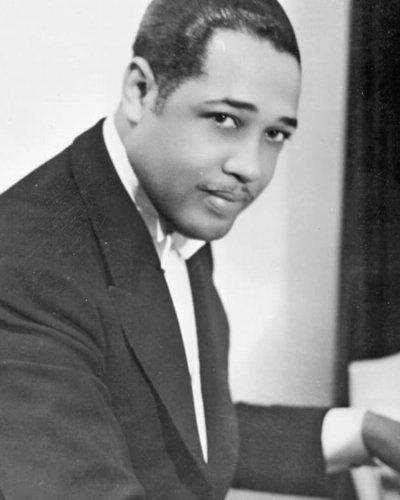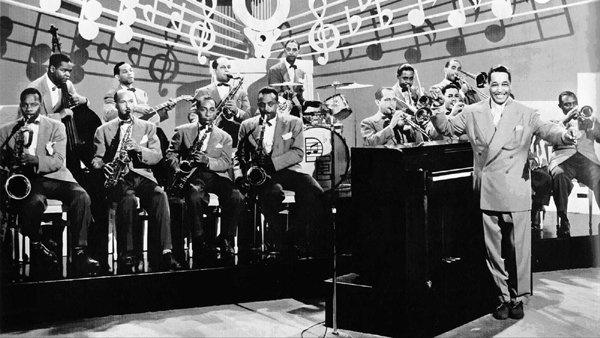Duke Ellington (piano), Charles Mingus (doble bass) and Max Roach (drums). From the album Money Jungle (1963).
Duke Ellington took advantage of the success that swing was having thanks to Benny Goodman. However, just as jazz was becoming American popular music, Ellington wanted to transform it into a serious art form. He had enough talent to reach the highest artistic level while still being a famous artist. His music contained dissonances and his melodies were not easy to hum. While most of the big bands included numerous popular songs in their repertoire, Ellington played his own compositions along with other types of music.

Duke Ellington
Sometimes he had unexpected successes, but very often he performed long and difficult to remember compositions. Even when he offered a lively theme with swing, it was not based on the typical riffs that led other bands to success, but on complicated arrangements. Today, his most famous themes are those with the usual AABA harmonic structure, but these are only a small part of his extensive musical personality.

Duke Ellington big band
The composition begins with Mingus making a sound like the fluttering of a bird and Ellington and Roach join in right away. Ellington exposes the theme with a simple, but reflexive melody. At a certain point, Mingus abandons his fluttering, but continues to play freely. Roach accompanies with subtle strokes on the drum with the mallets and Ellington makes slight variations on the theme, but without moving away much while Mingus returns to his flutter until the trio stops playing.
